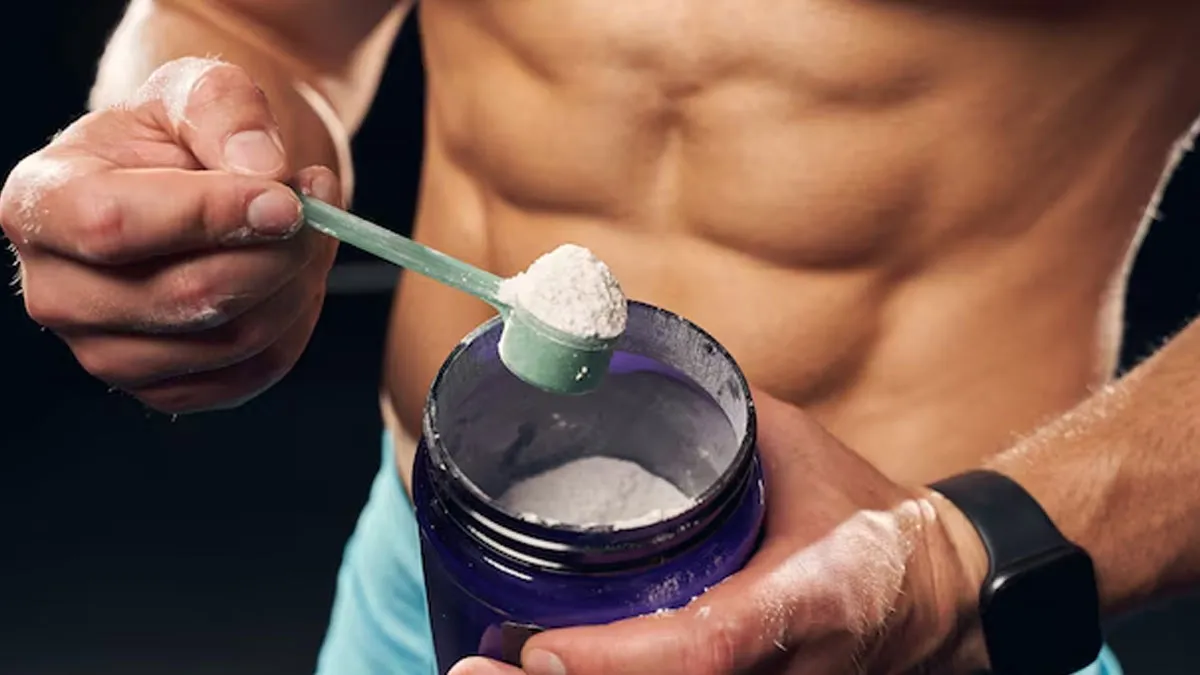
For years, creatine has been a go-to supplement for athletes and fitness enthusiasts to boost strength and muscle gains. But one question lingers: Does creatine harm your kidneys? Many people, including gym newbies, are warned that creatine spikes creatinine levels, a marker linked to kidney health and should be avoided. But is this fear justified? According to an expert, the answer is a clear no. Let’s debunk the myths and uncover the facts about creatine and kidney function.
Table of Content:-
The Creatine-Kidney Myth: What Experts Say
View this post on Instagram
Dr Shivani Nesargi, Medical Doctor, Sanjeevini Hospital, Raichur, explains that the concern around creatine stems from its effect on creatinine levels, a common marker used to assess kidney health. “When you take creatine, it can slightly raise creatinine levels, but this doesn’t mean your kidneys are damaged,” she says. It is a waste product from muscle metabolism, and higher levels can simply reflect increased muscle activity or supplementation—not kidney disease.
Here’s why the myth persists—and why it’s misleading:
- Creatine vs. Creatinine: Creatine converts to creatinine in the body, which kidneys filter out. Elevated creatinine alone isn’t a sign of damage.
- Other Factors: High muscle mass, intense workouts, and even some medications can raise creatinine levels naturally.
- Misleading Tests: Standard kidney tests focus on creatinine, but Dr Nesargi emphasises, “A better marker is cystatin C, which isn’t affected by muscle mass or supplements.”
ALSO READ: Is Glass Bottle Healthier Than a Plastic One? Here Is What an Expert Says
The Science: What Studies Reveal
A study published in the Journal of the International Society of Sports Nutrition examined long-term creatine use in healthy adults. Researchers found no harmful effects on kidney function, even in doses up to 10 grams daily for 18 months.
The study also highlighted that temporary creatinine spikes from creatine don’t indicate kidney damage unless paired with other symptoms like swelling or fatigue. Dr Nesargi adds, “If your cystatin C levels are normal, slightly elevated creatinine from creatine isn’t a concern. Don’t let fear stop you from using this safe, effective supplement.”
When Should You Worry About Kidney Health?

While creatine is safe for most people, the expert advises caution in specific cases:
- Pre-existing kidney issues: Avoid creatine if you have chronic kidney disease (CKD) unless approved by a doctor.
- Dehydration: Creatine draws water into muscles, so drink plenty of fluids to avoid stressing kidneys.
- Overuse: Stick to recommended doses (3–5 grams daily). Mega-dosing offers no extra benefits and risks side effects.
How to Monitor Kidney Health on Creatine
Worried about creatinine levels? Follow these steps:
- Test Cystatin C: Ask your doctor for this test, which isn’t skewed by muscle mass or supplements.
- Stay Hydrated: Drink 8–10 glasses of water daily to support kidney function.
- Avoid Mixing Risks: Don’t combine creatine with NSAIDs (e.g., ibuprofen) or alcohol, which can strain kidneys.
ALSO READ: Joining a Gym? Important Blood Tests to Take Before You Begin
Conclusion
Most people who use supplements see creatine as one of the most studied and safest options out there. If you don’t have kidney disease, there’s no need to avoid creatine. By checking your cystatin C levels, you can feel confident about using creatine for fitness while keeping an eye on your kidney health. Don’t let false information stop you from enjoying creatine’s benefits, like better workouts, faster recovery, and stronger muscles. Just stay informed, drink plenty of water, and train smart!
Also watch this video
How we keep this article up to date:
We work with experts and keep a close eye on the latest in health and wellness. Whenever there is a new research or helpful information, we update our articles with accurate and useful advice.
Current Version